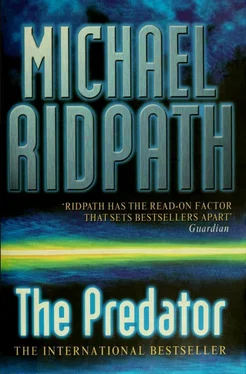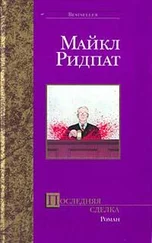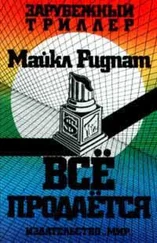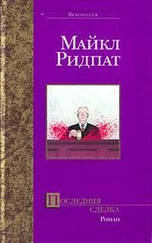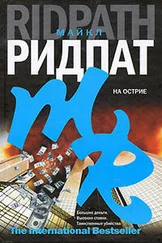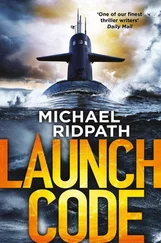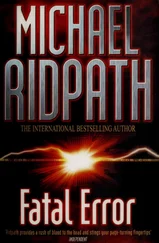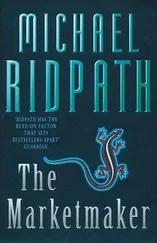Herbie came in, paced around Chris for a few minutes, and then was hauled off to talk to his bosses. Chris spent a miserable couple of hours at his desk. There was nothing he could do. Nothing he could say. No comment.
Then at twelve o’clock he was summoned to see Simon Bibby, the head of the London office. With Bibby were Larry Stewart, the American head of fixed income in Europe, and Herbie. Needless to say, they all looked like men who had lost more than half a billion dollars.
Bibby was English, forty-five, and ruthless. Larry was usually friendly to Chris, but he didn’t appear so now. And Herbie had a look in his eyes. A look that said to Chris: ‘I’m going to screw you, and you’re not going to escape, so don’t even try.’
Bibby did the talking. He said that he had spoken to Sidney Stahl, the chairman, who had demanded immediate action to come clean and clear up the mess. Then Bibby asked Chris why he had misled them over the revaluation of his position. At first, Chris didn’t understand. Then it became clear that Bibby had been told that the losses that were showing up on their reports weren’t real, and were offset by understated profits on derivatives positions. This was incorrect, and Chris began to explain why. Herbie interrupted. He looked Chris straight in the eye and told him that he had been misled by Chris, and had therefore unwittingly misled his superiors.
Chris protested, but Herbie was implacable. He recalled conversations that never existed that buried Chris. Then, when Chris looked at the other two, he understood. Bibby was glaring at Chris as though he were a criminal, but Larry, whom Chris liked and trusted, was looking at his hands, at the table in front of him, anywhere but at Chris. One of the four people in that room would have to take the blame for what had happened. The other three had decided that it would be Chris. Believing Herbie’s story was the easiest way to achieve this.
Chris protested for a further quarter of an hour, until the in-house lawyer came in with a two-page letter. Bibby told Chris that he was fired with immediate effect, but that he would receive six months’ salary, and Bloomfield Weiss would not seek to prosecute, as long as he signed the letter. Chris read it through carefully. Under it, he promised not to discuss the disaster with the press or anyone else, and not to take legal action against Bloomfield Weiss. Bibby handed Chris a pen, and said that if he didn’t sign the letter immediately, Bibby would be forced to call in the SFA, the City watchdogs.
Suddenly, Chris felt crushed. It was as though he had expected this moment ever since he had joined Bloomfield Weiss. He wasn’t an investment banker and he had been found out. Like it or not, he had put the trade on. He had acquiesced to Herbie’s demand that he double up. Of course he hadn’t misled Herbie, or Bibby, or anyone else, but it was his word against Herbie’s and he knew Herbie would win. Herbie was a ruthless street fighter. If there wasn’t evidence against Chris, he would fabricate it. And Bibby and Larry would believe Herbie. They didn’t want to believe the truth; they wanted to believe a lie, their careers depended on it. Chris now knew what he had long suspected: he wasn’t cut out for investment banking. He had no business to be in the room at all. He signed.
Bloomfield Weiss didn’t come right out and say that he had lost them six hundred million dollars. But they did say he had been dismissed. His name appeared in all the British press. Journalists wanted to interview him, his home phone rang constantly, people took photographs. He stood by the agreement he had signed; he didn’t talk to any of them. But he was famous. Famous as the man who had dropped over half a billion.
Ironically, the trade did come right in the end, monetary union happened and the government bonds converged. Some people made a lot of money. But not Bloomfield Weiss. Under Sidney Stahl’s insistence, they bared their chest, took their losses and moved on.
Chris tried to do the same. He called back the headhunters who had been calling him every week for a year. They didn’t want to know. Nobody wanted to know. He couldn’t get a job. He could probably have tried harder, but he didn’t have it in him. He didn’t want to be an investment banker anyway. So he gave up.
In time, Lenka pulled him out of it. They set up Carpathian together and everything went well, until suddenly, at the crucial moment, that loss came back to kick him in the balls again.
Except that this time, he wouldn’t just take it. He owed Lenka that much, if not himself.
He straightened up and lengthened his stride as he made his way down Harley Street back towards the office. He would try to talk Rudy out of his decision. But if that didn’t work, he would figure out a way to keeping going. He was determined to.
Back at the office, he examined the portfolio. The fund was set up so that there were two choices when an investor wanted to redeem: either find a new investor to take his place, or sell assets to raise the cash needed. Finding a new investor was out of the question without Lenka. She had the contacts, and it would be impossible for Chris to persuade someone he didn’t know to invest ten million euros with him when half the management team had been murdered.
So he would have to sell some bonds. Which ones?
Although they only had fifty-five million euros of funds available to them, their portfolio was much bigger. They had borrowed money and used the mysteries of the repo market to build up much larger positions. In fact, most of the portfolio in volume was made up of a new convergence trade, which was managed by Chris. The theory was that most of the Central European countries would be admitted to the European Union. So Chris had bought the government bonds of countries like the Czech Republic, Poland, Estonia, Hungary and Slovenia. He dabbled in some of the second-tier countries as well. At first he had balked at putting himself in such a familiar position, but Lenka had encouraged him, saying he was the best person she knew in the market to manage such a trade, and promising him that whenever he wanted to cut and run, she wouldn’t get in his way. He had taken a deep breath and started buying.
The resignation of the Russian Finance Minister had shaken all these positions, but Chris was convinced of their fundamental strength, and wanted to hold on.
The rest of the portfolio was made up of high-yield bonds, otherwise known as junk. Lenka had learned about these in the United States, and the idea was that she would use her experience to analyse the small but growing number of junk bonds issued in Eastern Europe. By far the largest of these junk-bond positions was Eureka Telecom. It was also the position that was performing worst, and the one Chris trusted the least.
Eureka Telecom it would be, then.
It might take a while to sell the bonds, so Chris decided to start the process immediately. If he succeeded in persuading Rudy to maintain his investment in Carpathian, then Chris could always reinvest the money elsewhere. He called Ian.
‘Where’s Eureka Telecom trading?’ he asked, dispensing with any small talk.
‘I think we’re making them ninety-five to ninety-seven,’ Ian answered.
‘Ninety-five! But Lenka bought them at par last week, didn’t she?’
‘I know,’ said Ian sounding uncomfortable. ‘But the market’s spooked by this Russian news. And the latest subscriber numbers came out on Monday. They were, er, disappointing.’
‘Bad news the week after the bond was issued!’ said Chris. ‘Wasn’t that in the prospectus?’
‘It was a complete surprise to everybody,’ said Ian. ‘That’s why my trader has marked the bonds down.’
In theory, that meant that Bloomfield Weiss would be prepared to buy Chris’s bonds at a price of ninety-five, and sell him more at a price of ninety-seven. Lenka had bought her twenty-five million bonds at a price of par, or a hundred. So, in theory, Chris could sell ten million of them for a five per cent loss, which was half a million euros. Not great, but not a total disaster. He had a bad feeling about this one. He wanted to get out straight away.
Читать дальше
